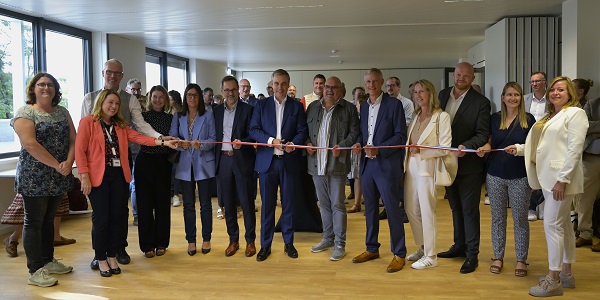 Credit: MENJE
Credit: MENJE
Wednesday 27 September 2023 saw the inauguration of the "Gravity" space in Differdange, which houses nine national education services.
The inauguration took place in the presence of Luxembourg's Minister of Education, Children and Youth, Claude Meisch, the director of primary education in Differdange, Marc Bodson, the mayor of Differdange, Guy Altmeisch, and representatives of the competence centres.
The available services (located at 2 Rue John Ernest Dolibois) include the directorate of primary education in Differdange as well as the local branches of the National Office for Children (Office national de l'enfance - ONE), the National Youth Service (Service national de la jeunesse - SNJ) and six competence centres for specialised educational psychology. According to Luxembourg's Ministry of Education, Children and Youth, these services "benefit from the synergies and collaborations made possible by their proximity".
The decentralisation of the six competence centres is also expected to facilitate their consultations for children and young people. The Gravity space thus houses the branches of a speech therapy centre (Centre de Logopédie - CL), a centre for the development of skills relating to sight (Centre pour le Développement des compétences relatives à la Vue - CDV), a centre for learning development (Centre pour le Développement des Apprentissages Grande-Duchesse Maria Teresa - CDA), a centre for motor development (Centre pour le Développement Moteur - CDM), a centre for intellectual development (Centre pour le Développement Intellectuel - CDI) and a centre for autistic children and young people (Centre pour enfants et jeunes présentant un trouble du spectre de l'autisme - CTSA).
As the ministry explained, competence centres for specialised educational psychology are aimed at students with specific educational needs and their parents who wish to benefit from specialised services, in addition to the services offered by primary or secondary education. To access support from these centres, parents can contact the inclusion committees attached to the regional directorates of primary education or present in secondary education establishments or to the National Inclusion Commission.








